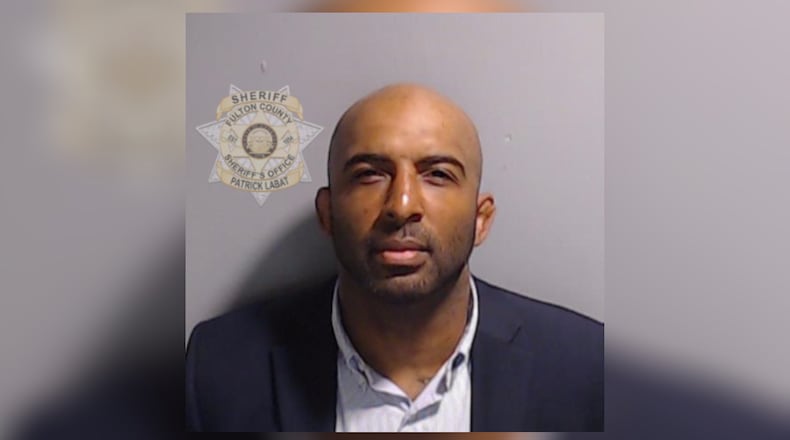Fulton County District Attorney Fani Willis is asking a judge to revoke the bond agreement for one of Donald Trump’s co-defendants in her election interference case, citing what she says is a “pattern of intimidation” toward co-defendants and witnesses.
Willis said Harrison Floyd has “engaged in numerous intentional and flagrant violations” of his bond agreement. She pointed to recent comments Floyd made on conservative podcasts and posts on the social media site X that tag Secretary of State Brad Raffensperger, former Fulton County poll worker Ruby Freeman and others.
“The defendant’s actions demonstrate that he poses a significant threat of intimidating witnesses and otherwise obstructing the administration of justice in the future, making him ineligible for bond,” Willis wrote in a court filing on Wednesday.
If Fulton Superior Court Judge Scott McAfee agrees, Floyd will be forced to return to jail as he awaits trial. The judge could also take more intermediate steps, such as warning Floyd or barring him from posting on social media.
McAfee scheduled a hearing for Nov. 21 and requested that Floyd be in attendance.
Floyd’s two attorneys did not respond to phone calls seeking comment. But Christopher Kachouroff, one of Floyd’s lawyers, told 11Alive that the social media posts Willis highlighted did not violate the conditions of his client’s bond agreement.
“Are some of the things borderline untasteful? Sure,” Kachouroff told the TV station. “But nothing that would overtly violate the order.”
Hours after Willis filed her request, Floyd took to his X account to slam the DA for a fundraiser she was holding in Washington, D.C., and the recent deaths of Black inmates at the Fulton County Jail. He also shared a video of Clarence Thomas during his Supreme Court confirmation hearing amid the Anita Hill scandal in 1991.
“Clarence Thomas was right,” said Floyd, before quoting the would-be justice. “This is a circus. It is a national disgrace. It is a high tech lynching for an uppity black.”
The former head of Black Voices for Trump, Floyd was indicted for violating Georgia’s anti-racketeering law, conspiracy to commit solicitation of false statements and writings, and influencing witnesses. The charges stem from his interactions with Freeman, who was singled out by Trump, attorney Rudy Giuliani and others for her work counting votes at State Farm Arena.
According to the indictment, the former U.S. Marine allegedly recruited co-defendant Trevian Kutti, a one-time publicist for Kanye West and R. Kelly, to visit Freeman. After Freeman and Kutti began talking at a police station, the latter placed Floyd on speakerphone. Kutti and Floyd spoke to Freeman at length, pressuring her to reveal information about alleged election fraud and warning her she was in danger if she did not comply, according to prosecutors.
Floyd is the sole defendant in the racketeering case to spend time behind bars in the Fulton County jail. He surrendered in August without first hiring an attorney who could work out a prearranged bond on his behalf.
During his five days behind bars, Floyd became a cause celeb in some conservative circles — and a thorn in the side of Willis. His attorney accused the DA of wanting Floyd to “rot” in jail, but Willis’s office released a recorded phone call to The Atlanta Journal-Constitution in which the DA explained to Floyd’s previous lawyer that she had sent a representative to meet with Floyd when he turned himself but that he refused it.
Floyd has implied that Willis is singling him out because he’s a Black conservative.
“I went against the code, if you will, at the highest order,” Floyd told former Trump aide Steve Bannon on his podcast “War Room.”
A crowdfunding campaign on the Christian fundraising platform GiveSendGo has raised more than $341,000 for his legal defense.
Since then, Floyd’s attorneys have adopted one of the more unique legal strategies in the case: trying to prove that Trump indeed won the 2020 election in Georgia — or that there was enough ambiguity to justify Floyd’s actions in late 2020.
Floyd’s $100,000 bond agreement states that he “shall perform no act to intimidate” or communicate directly or indirectly with any case co-defendant or witness.
About the Author
Keep Reading
The Latest
Featured




